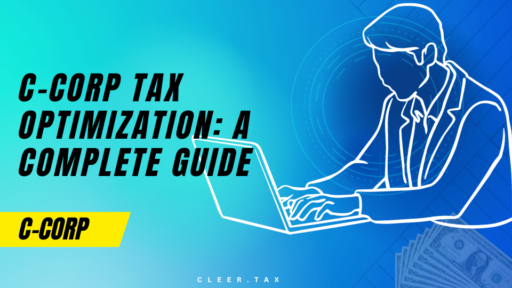What is Form 5472, and Who Needs to File It?
Form 5472 is an information return for 25% Foreign-Owned U.S. Corporations or Foreign Corporations engaged in a U.S. trade or business. Under sections 6038A and 6038C, Form 5472 is to be filed if there are reportable transactions between the reporting corporation and any foreign or domestic-related party.
Instructions for Form 5472 state that it is to be filed together with the reporting corporation’s Income Tax Return as an attachment when the Corporate Tax Return or Form 1120 is due.
What Are the Penalties for Not Filing Form 5472?
It is very important to know whether you will be subjected to penalties, as the IRS will always want any reporting requirement to be filed correctly and on time. When it comes to this form, the IRS has automatic penalties for late and/or incomplete filing of Form 5472.
The penalty for late and incomplete filing of Form 5472 before the taxable year 2018 was $10,000 per form, but it has increased since then. The existing penalty for late and incomplete filing of Form 5472 is $25,000 per form, starting after tax year 2018. The penalty is given per form because each set of Form 5472 will need to be filed for every related party with reportable transactions for every tax year. To avoid this, always file before the deadline for Form 5472 and ensure it is completed accurately.
To File Form 5472, the Following Qualifications Must Be Met:
The Reporting Corporation
The reporting corporation can be either a U.S. corporation or a Foreign corporation that meets the following qualifications:
- A U.S. corporation is a reporting corporation if a single foreign person or company has at least 25% ownership (directly or indirectly). It is important to note that this qualification is only applicable to Corporations. Partnerships are not required to file Form 5472.
- A U.S. Foreign-owned disregarded entity (FODE) is also a reporting corporation. A Foreign-owned disregarded entity is an LLC owned by a single person or entity.
- A Foreign Corporation can only be a reporting corporation if it is engaged in trade or business within the United States.
The Related Party
The related party can be:
- The foreign shareholder of the reporting corporation with at least 25% ownership.
- A person or company related to the reporting corporation under Section 267(b) or 707(b)(1).
- A person or company related to the 25% foreign shareholder under Section 267(b) or 707(b)(1).
Some of the examples of related parties under Section 267(b) are the following:
– Family members of the foreign shareholder.
– A sister company of the reporting corporation.
– A partnership owned by more than 50% of the foreign shareholder.
- Any other company related to the porting corporation under Section 482. An example is two or more business entities owned or controlled by the same person or company, directly or indirectly.
What is the Definition of a Reportable Transaction?
A reportable transaction is any transaction listed in the Part IV of Form 5472 which:
- Resulted in a monetary consideration paid or received by the reporting corporation during the taxable year.
- It is a reportable transaction if part of the consideration paid or received by the reporting corporation is not a monetary consideration.
- It is also a reportable transaction even if the consideration paid or received by the reporting corporation was less than the full consideration.
It is also important to note that if the related party is a U.S. person/company, the reportable transactions need not be reported on Part IV or Part VI of Form 5472.
The following are the reportable transactions listed in Part IV of the Form 5472*:
- Purchases/Sales of stock in trade (inventory).
- Purchases/Sales of tangible property other than stock in trade.
- Platform contribution transaction payments received/paid. An example of this is when the reporting corporation is acting as a collecting agent to a foreign-related party or vice versa, using Stripe.
- Cost-sharing transaction payments received/paid.
- Rents/Royalties received/paid (for other than intangible property rights).
- Purchases/Sales, leases, licenses, etc., of intangible property rights.
- Consideration received/paid for technical, managerial, engineering, construction, scientific, or like services.
- Commissions received/paid.
- Amounts borrowed/loaned.
- Interest received/paid.
- Premiums received/paid for insurance or reinsurance.
- Other amounts received/paid. This portion is for the reportable transaction that is not enlisted from #1-11 but still affects the reporting corporation’s taxable income for the taxable year.
Exceptions to Filing Form 5472
The I-III above is the checklist to identify if the company is required to file Form 5472 in attachment to the Annual Federal Tax Return. However, there are still exceptions. The following instances exempt a reporting corporation from filing Form 5472:
- If there are no reportable transactions to be reported in Part IV and Part VI of the form.
- If the reportable transaction is between a U.S. corporation and a foreign subsidiary, wherein the U.S. corporation owns more than 50% or has control over the foreign subsidiary. A U.S. corporation that controls a foreign subsidiary is required to file Form 5471, and the same Part IV in Form 5472 is also reported in Schedule M of Form 5471. To avoid repetition of the report, Form 5472 is not required from a reporting corporation in this instance. This exemption is not applicable to U.S. Foreign-owned disregarded entities.
- If the reporting corporation is a Foreign Sales Corporation and files Form 1120-FSC instead of the regular Form 1120. This exemption is also not applicable to U.S. Foreign-owned disregarded entities.
- If the reporting corporation is a Foreign corporation without any permanent establishment in the United States under an existing tax treaty between the foreign corporation’s country and the USA.
- If the reporting corporation is a Foreign corporation and under Section 883, their gross income is tax-exempt but still complies with the reporting requirements of Section 883 and Section 887.
- If the reporting corporation and the related party are both non-US persons.
Foreign Person
As a reference** a foreign or non-U.S. person is:
- An individual who is not a U.S. resident/citizen.
- An individual who is a citizen or resident of a U.S. possession who is not otherwise a citizen or resident of the United States.
- Any partnership or corporation that is not created or incorporated under the United States and its laws.
- Any foreign estate or foreign trust described in section 7701(a)(31).
- Any foreign government (or agency or instrumentality thereof) to the extent that the foreign government is engaged in the conduct of a commercial activity as defined in section 892.
Need Assistance with Filing Form 5472?
Even after you know the basics of filing Form 5472 as a Foreign Owner, it can still be tricky to get your finances sorted to ensure it is done properly so you can avoid penalties. That’s where Cleer Tax comes in – our team of experts is ready to guide you every step of the way to make your tax filing experience effortless.
*See the Form at https://www.irs.gov/pub/irs-pdf/f5472.pdf






